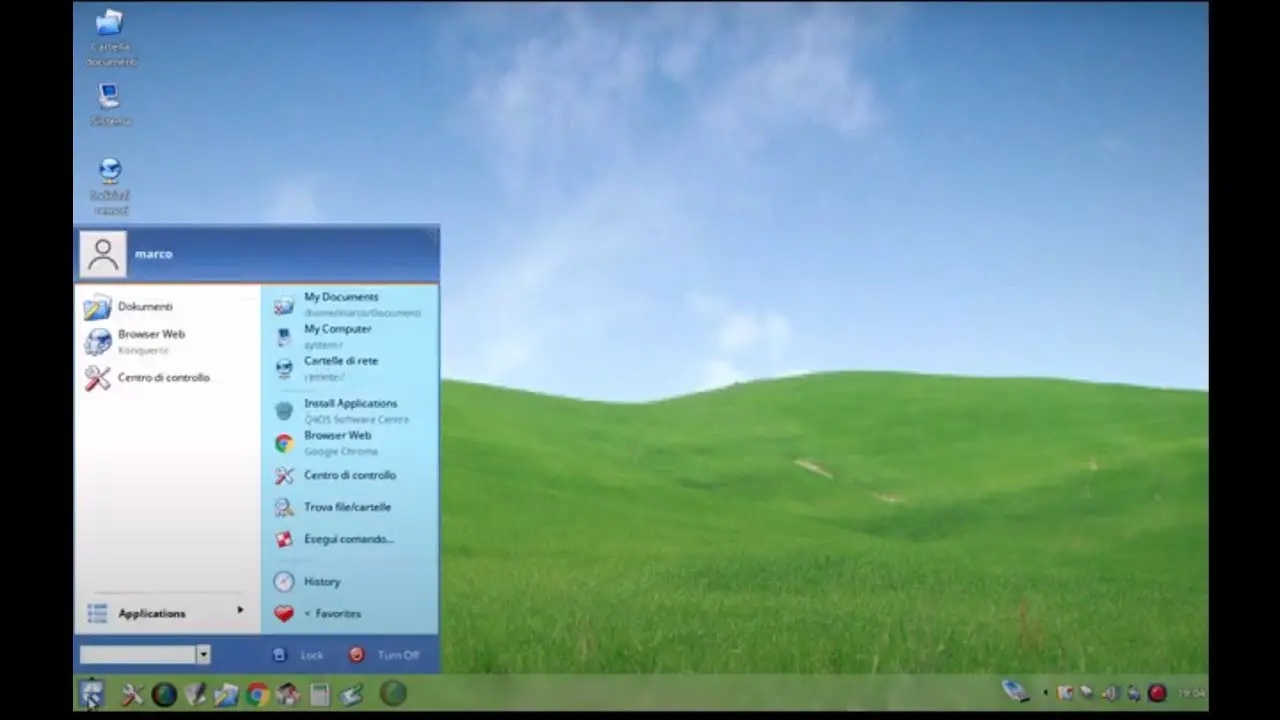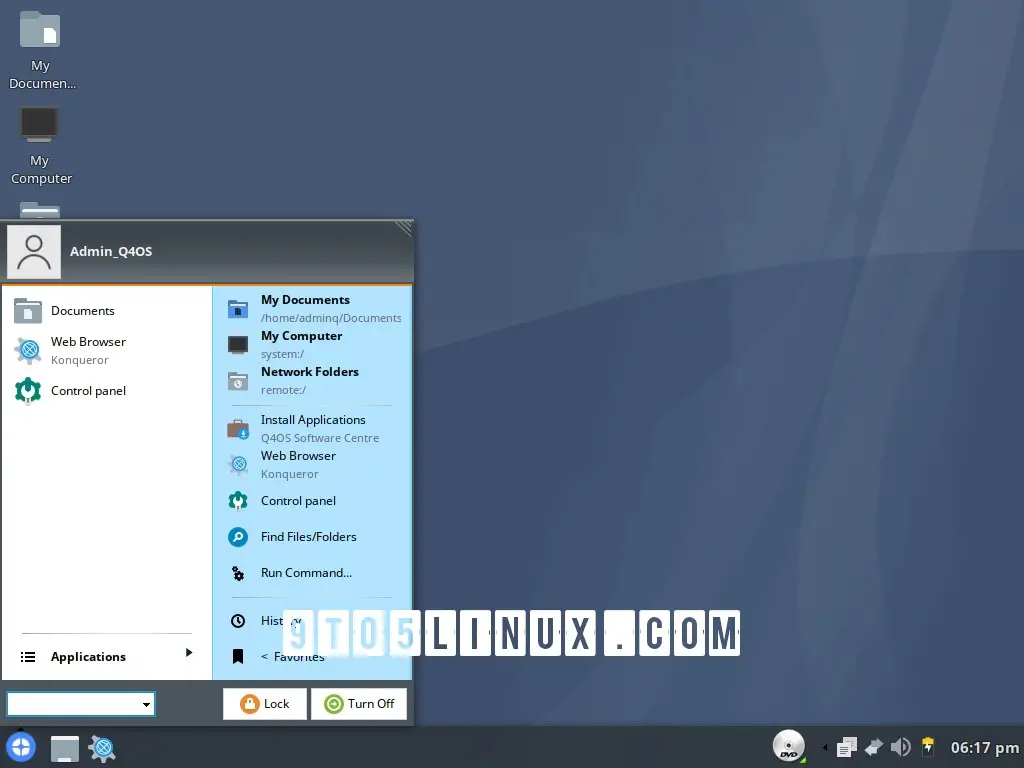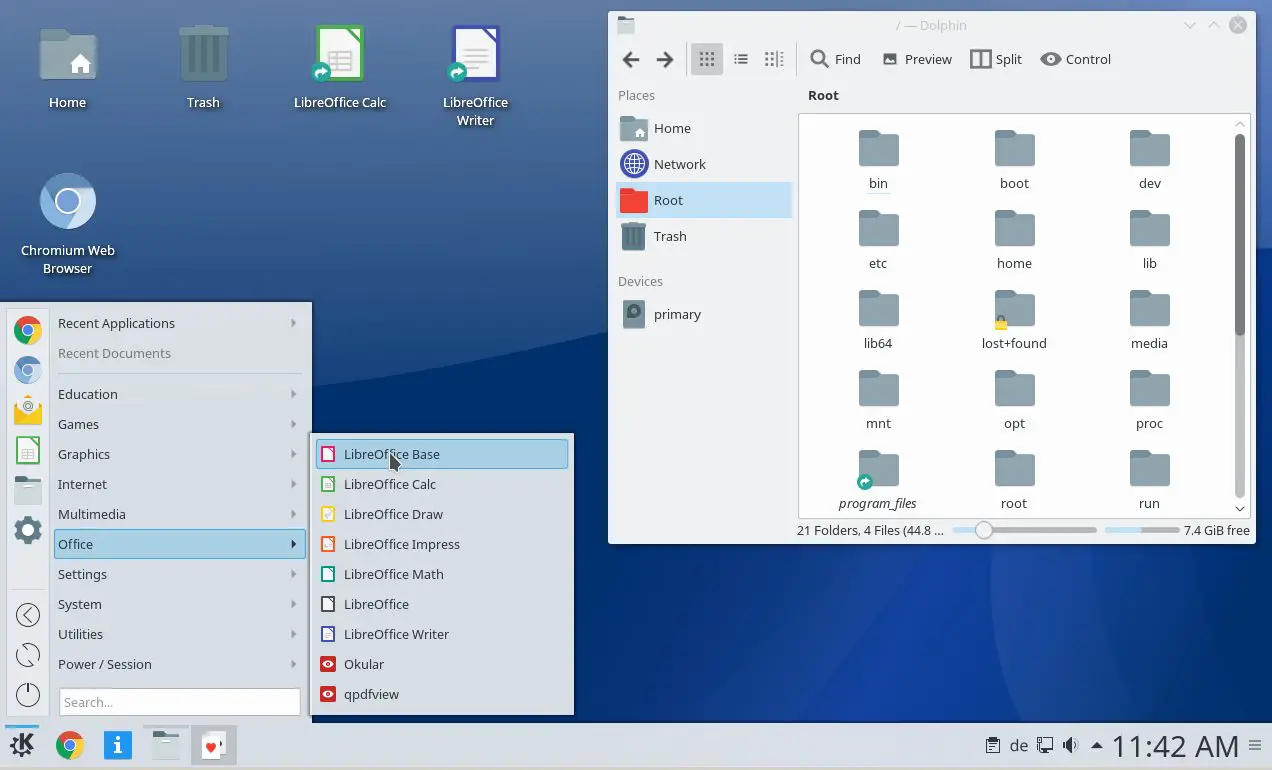Q4OS and Trinity Desktop Environment: Embracing Classic Desktops

In the contemporary computing landscape marked by sleek and modern operating systems, Q4OS and Trinity Desktop Environment stand out as staunch proponents of classic desktop experiences. Targeted at users who cherish a familiar and nostalgic computing environment, these platforms offer a unique blend of vintage aesthetics and practical functionality.

Trinity Desktop Environment: A Homage to Tradition

Trinity Desktop Environment (TDE) harkens back to the golden age of desktop computing, emulating the intuitive and visually appealing user interface of Windows 98, XP, and 2024. It embodies the ethos of simplicity, providing a clean and uncluttered workspace that prioritizes ease of use. At its core, TDE is a fork of the KDE 3.5 codebase, ensuring a robust and stable computing experience.
Q4OS: Preserving Legacy Computing
Q4OS is a Linux distribution that seamlessly integrates TDE as its primary desktop environment. It caters to users who may not be comfortable with the complexities of modern operating systems or who simply prefer a more traditional computing experience. Q4OS meticulously retains the look and feel of classic Windows operating systems, down to the iconic Start button and familiar tray icons.
Benefits of Classic Desktops
- Nostalgia and Familiarity: For users who grew up with the likes of Windows 98 and XP, Q4OS and TDE provide a comforting and familiar computing environment that evokes fond memories.
- Ease of Use: The classic desktop layout minimizes distractions and clutter, making it intuitive and easy to navigate, even for less tech-savvy individuals.
- Support for Legacy Applications: Q4OS and TDE retain compatibility with numerous legacy applications that may not be supported on more modern operating systems, preserving access to valuable software.
Limitations of Classic Desktops
- Limited Modern Features: While classic desktops offer a nostalgic experience, they may lack some advanced features and functionality found in contemporary operating systems, such as touchscreen support or cloud integration.
- Security Concerns: Legacy operating systems may be more vulnerable to security breaches due to outdated security protocols and lack of ongoing software updates.
Conclusion
Q4OS and Trinity Desktop Environment offer a unique and appealing solution for users seeking a classic desktop experience within a modern Linux framework. They provide a nostalgic and user-friendly computing environment that prioritizes simplicity and legacy compatibility. While they may not be the most technologically advanced options, they serve a niche audience who values the familiarity and comfort of traditional computing. Whether you’re a long-time user of Windows or simply appreciate the aesthetics of classic desktops, Q4OS and TDE are worth considering as a refreshing alternative to the mainstream computing landscape.## Q4os Vs. Trinity Desktop Environment: Classic Desktops
Executive Summary
Q4os and the Trinity Desktop Environment (TDE) are two lightweight and customizable desktop environments that cater to users seeking a classic desktop experience reminiscent of Windows XP or KDE 3.5. While TDE offers a familiar interface and abundant customization options, Q4os provides a more integrated and user-friendly experience, particularly for those migrating from Windows or seeking a simpler desktop.
Introduction
Both Q4os and TDE prioritize ease of use and customization, making them suitable for various user needs and preferences. While TDE is a standalone desktop environment, Q4os is a complete operating system built around the TDE. This distinction shapes their respective strengths and drawbacks, which we will explore in this article.
Subtopic 1: User Interface and Familiarity
User Interface: TDE emulates the familiar Windows XP interface, complete with a taskbar, start menu, and desktop icons. Q4os, on the other hand, offers a more modern and streamlined interface akin to Windows 7 or 10.
Familiarity: TDE’s classic design makes it instantly recognizable to users accustomed to earlier versions of Windows. Q4os, with its more contemporary look, may require a brief adjustment period for those familiar with traditional desktop layouts.
Subtopic 2: Customization and Flexibility
Customization: TDE excels in customization, enabling users to tweak numerous aspects of their desktop environment, including themes, widgets, and panel layouts. Q4os provides a more streamlined customization experience, with a focus on simplified configuration options.
Flexibility: TDE’s open-source nature allows users to modify and extend its functionality with custom scripts and plugins. Q4os, being a closed-source operating system, offers limited flexibility in this regard.
Subtopic 3: Integration and User Friendliness
Integration: Q4os boasts a high level of integration between its components, providing a seamless and cohesive user experience. TDE, being a desktop environment, requires integration with a compatible operating system.
User Friendliness: Q4os prioritizes user friendliness, with an intuitive interface and minimal learning curve. TDE, while customizable, may require some technical proficiency for advanced configurations.
Subtopic 4: Hardware Compatibility and Resource Usage
Hardware Compatibility: Q4os is based on Debian and provides broad hardware compatibility, ensuring support for a wide range of devices. TDE, as a desktop environment, has a similar level of hardware compatibility, but its performance may vary depending on the underlying operating system.
Resource Usage: Both Q4os and TDE are known for their lightweight design, consuming minimal system resources. This makes them suitable for older or resource-constrained computers.
Subtopic 5: Community Support and Longevity
Community Support: Q4os and TDE have active and supportive communities that provide documentation, forums, and troubleshooting assistance.
Longevity: Q4os is actively developed and supported, ensuring regular updates and security patches. TDE, while no longer officially developed, has a dedicated community that maintains and enhances its functionality.
Conclusion
Q4os and TDE offer compelling options for users seeking a classic desktop experience. Q4os stands out with its integrated, user-friendly interface and seamless functionality, making it an ideal choice for those prioritizing ease of use or migrating from Windows. TDE, on the other hand, appeals to users who value extreme customization options and flexibility. Ultimately, the choice between these two depends on individual preferences and computing requirements.
Keyword Phrase Tags
- Classic Desktop Environments
- Q4os Linux
- Trinity Desktop Environment
- Lightweight Desktop
- Customization Options
- User Friendliness
- Hardware Compatibility
- Community Support
- Legacy Desktops

Q4os is a grat distribution. I have been using it for over a year now and I have never had any problems with it. TDE is a great desktop environment. It is very user-friendly and it has a lot of features. I would highly recommend Q4os to anyone who is looking for a classic desktop experience.
Q4os is a shit distribution. I installed it on my computer and it broke my system. TDE is a terrible desktop environment. It is ugly and it is not user-friendly. I would not recommend Q4os to anyone.
Q4os is a good distribution. It is based on Debian, which means that it has a large software repository and a strong community of developers. TDE is a good desktop environment. It is a fork of the KDE 3.5 desktop environment, which means that it is familiar to many users. LXDE is a good desktop environment. It is lightweight and it is designed to be fast and efficient.
TDE is a better desktop environment than LXDE. TDE is more powerful and it has more features. LXDE is more lightweight, but it is not as feature-rich as TDE.
Q4os is a great distribution for people who are looking for a classic desktop experience. TDE is a great desktop environment. It is very user-friendly and it has a lot of features.
Q4os is a terrible distribution. TDE is a horrible desktop environment. It is ugly and it is not user-friendly. I would not recommend Q4os to anyone.
Q4os is my favorte. Desktop enviroment are good, simple and clean.
I use Q4os and i love it. TDE is really easy to use and it has a lot of features. LXDE is also a good option if you’re looking for a lightweight desktop environment.
Q4os is not good. I had problems with it. TDE is not good. It is ugly and it is not user-friendly. I would not recommend Q4os to anyone.